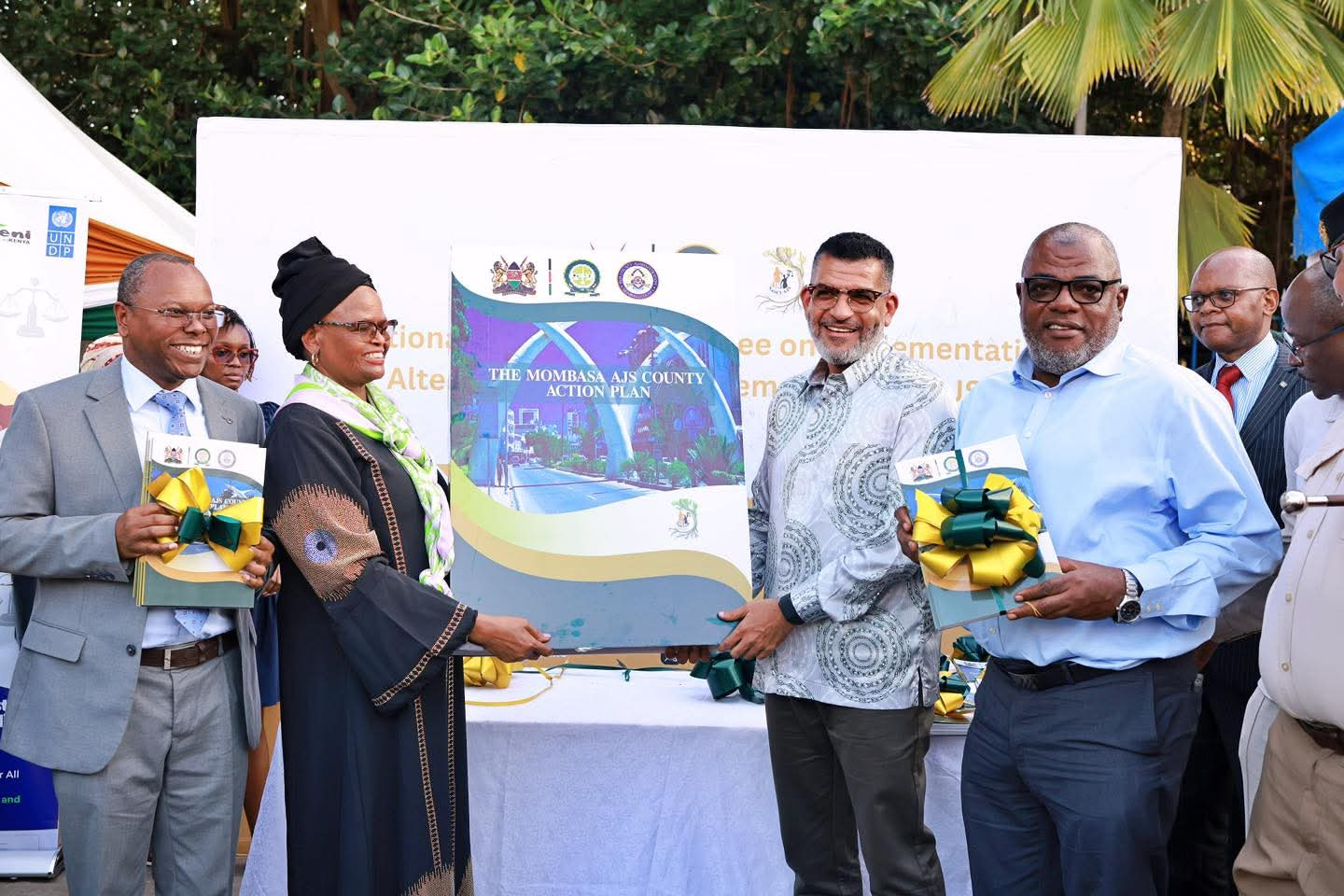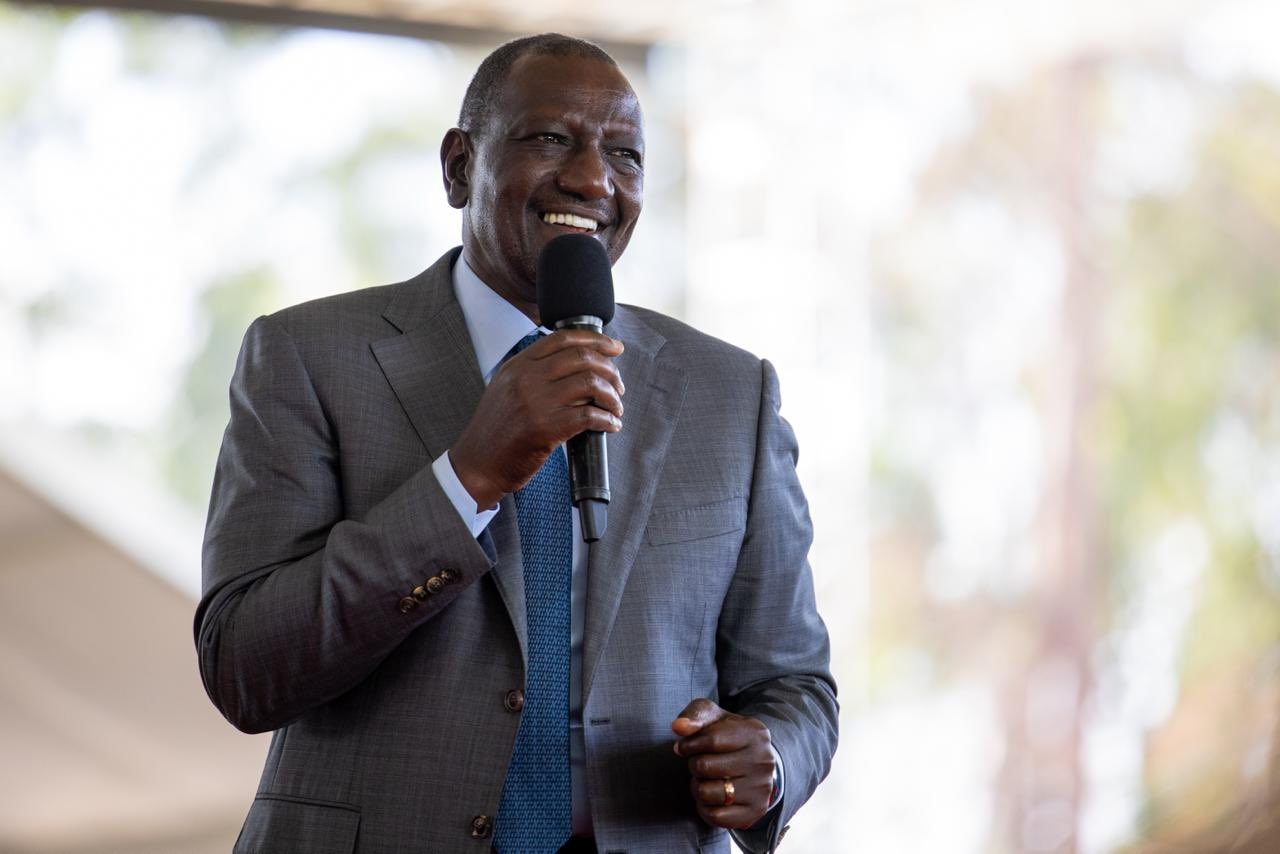Relief for Mombasa residents as Alternative Justice System unveiled to ease court backlog

Mombasa is now the eleventh county to adopt the Alternative Justice System as the Judiciary seeks to expand people-centred justice, reduce reliance on lengthy litigation, and bring dispute resolution closer to the people.
For many in Mombasa, the long wait for justice has been a painful reality, with cases dragging in court for years and legal fees draining family incomes.
Residents now say the launch of the Alternative Justice System (AJS) offers them a lifeline, finally allowing disputes to be resolved quickly and affordably within their own communities.
More To Read
- Illegally grabbed Mombasa land to host affordable housing units after EACC recovery
- Men dominate Judiciary complaints and case filings as gender gaps persist despite digital progress
- Judiciary reports 17 per cent drop in fines collected for minor offences in 2023/24
- Judiciary holds historic 'closing of files' ceremony to honour fallen judicial officers
- Kenya Magistrates and Judges Association ushers in new leadership team as Justice Mulwa takes over as President
- JSC launches probe into bribery allegations against judge
Mombasa is now the eleventh county to adopt the Alternative Justice System as the Judiciary seeks to expand people-centred justice, reduce reliance on lengthy litigation, and bring dispute resolution closer to the people.
Unveiling the model in Mombasa, Chief Justice Martha Koome said the framework would ease pressure on the formal courts while helping communities solve conflicts in ways that reflected their cultures.
She gave examples of indigenous traditions, such as the use of papaya fruit among the Digo and the goat sacrifice in Meru, to highlight how Kenyans had long resolved disputes without litigation.
Mombasa Governor Abdulswamad Sheriff Nassir welcomed the initiative, saying it was a much-needed response to the county’s stubborn land problems.
He revealed that over 2,000 land disputes were still pending in Mombasa courts, describing land conflicts as the region’s most toxic challenge. He urged residents to embrace dialogue rather than let politicians exploit grievances for political mileage.
Senator Mohammed Faki also backed the system but pressed for a stronger judicial presence in the county, including the establishment of a Kadhi’s Court in Shanzu to ease access for residents in outlying areas.
He argued that additional judges and magistrates would be crucial in clearing the backlog.
Mgeni Juma from Likoni said the change could not have come sooner. She recalled how her family had spent years locked in a land dispute that never seemed to move in court.
“We have suffered for too long, but now we believe this will bring us peace without wasting years of our lives,” she said.
She wants the committees to first tackle land matters, noting that is where most families suffer. “If they can speed up land disputes, it will bring real relief,” she suggested.
Another resident, Hamisi Salim boda boda rider, noted that the cost of lawyers had kept many away from seeking justice altogether, suggesting that elders and local committees step in.
“Many of us cannot afford lawyers. If this model is truly for the people, then hearings must be free or very low-cost; otherwise, it will repeat the same mistakes as the courts,” he said.
The frustrations of endless court delays were also familiar to Jane Wanjiru, who has battled a case for over a decade.
She said she hoped the AJS model would free families like hers from the burden of waiting for decisions that never came.
Sauda Idi added that grassroots solutions could mend the social fabric, stressing that disputes settled locally often left less bitterness.
“We need reconciliation, not just rulings. We don’t want a situation where even elders take bribes. There must be strong monitoring so that justice is not sold to the highest bidder,” she cautioned.
Ramadhan Musa suggested involving young people directly in the process to strengthen trust.
“Most panels are filled with elders, yet young people are the ones caught in many disputes today, from employment to family matters. The Judiciary should train youth representatives to sit on these committees,” he said.
For market trader Zainab Omar, the value lay in returning to cultural traditions, “Our communities have always had ways of solving problems. This system respects that and gives us dignity,” she said.
Top Stories Today













































